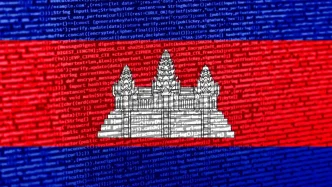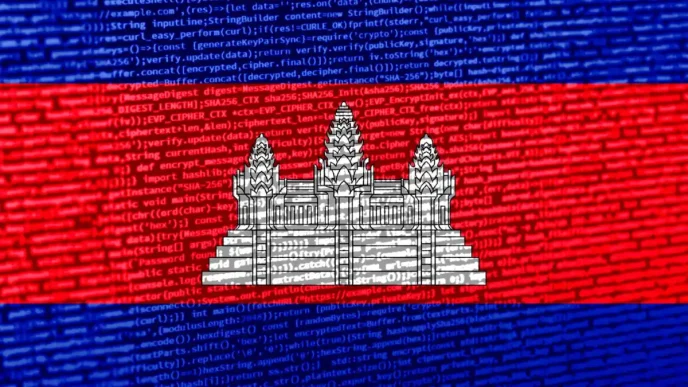In a significant crackdown on maritime smuggling, Vietnam’s Coast Guard has intercepted a wooden fishing boat carrying 70,000 liters of contraband diesel off the coast of Côn Đảo Island in Bà Rịa-Vũng Tàu Province. The operation, conducted in the early hours of April 26, 2025, marks a notable escalation in efforts to curb illegal trade in Vietnamese waters, amid heightened patrols tied to national commemorative campaigns.
Details of the Seizure
At approximately 3:20 a.m. on April 26, a patrol team from the Coast Guard Intelligence Division No 2 spotted the fishing vessel, registered as LA-99096-TS from Long An Province, about 70 nautical miles east-northeast of Côn Đảo Island. Upon inspection, authorities discovered a large quantity of oil of unknown origin. The boat’s captain, Nguyễn Văn Trí, along with five crew members, was unable to provide documentation proving the oil’s legitimacy. Additionally, none of the crew held the necessary certifications to operate as sailors, raising further suspicions about the nature of their activities.
By 8 a.m. on April 27, the patrol team, in collaboration with the Coast Guard Region No 3 Command, escorted the vessel ashore to Vũng Tàu City. The case was subsequently handed over to Squadron No 301 for further investigation. While the exact value of the seized diesel has not been officially disclosed, estimates based on local fuel prices suggest it could be worth several hundred thousand US dollars, underscoring the scale of the illicit operation.
Context of the Operation
The seizure comes as part of a broader emulation campaign by the Coast Guard Intelligence Division No 2, which is based in Đồng Nai Province. Senior Lieutenant Colonel Phan Nhân Hậu, Political Commissar of the division, highlighted that the operation aligns with celebrations marking the 50th anniversary of the Liberation of the South and National Reunification, as well as the 135th birth anniversary of late President Hồ Chí Minh. These milestones have spurred intensified efforts to safeguard national security and combat maritime crime.
The division’s jurisdiction spans a vast area, stretching from Phú Yên Province in south-central Vietnam to Kiên Giang Province in the Cửu Long (Mekong) Delta, and includes the strategically significant Trường Sa (Spratly) Archipelago. Tasked with detecting and addressing violations such as smuggling, trade fraud, and threats to national security, the Coast Guard plays a critical role in maintaining order across Vietnam’s extensive maritime territory.
Smuggling Challenges in Vietnamese Waters
Smuggling, particularly of fuel and other high-value goods, remains a persistent challenge in Vietnam’s coastal regions. The country’s long coastline and proximity to international shipping lanes make it a hotspot for illicit trade. Contraband diesel, often sourced from neighboring countries or diverted from legitimate supplies, undercuts local markets and deprives the government of significant tax revenue. Moreover, such activities pose environmental risks, as unregulated fuel transport can lead to spills or improper disposal.
In recent years, Vietnamese authorities have ramped up efforts to address these issues, deploying advanced surveillance technology and increasing patrol frequency. The Coast Guard has also collaborated with regional partners to tackle cross-border smuggling networks. However, the vastness of the maritime area under their watch, coupled with the ingenuity of smugglers who often disguise their operations under the guise of legitimate fishing, continues to complicate enforcement efforts.
While no official statement has confirmed the origin of the seized diesel in this case, speculation among local observers points to possible links with regional black markets. If verified, this could prompt further investigations into supply chains feeding contraband fuel into Vietnam. Authorities have yet to disclose whether the crew members will face charges, but the lack of documentation and certifications suggests potential legal consequences under Vietnam’s maritime and trade laws.
Broader Implications for National Security
Beyond the immediate economic impact, maritime smuggling raises significant concerns for Vietnam’s national security. The involvement of unregistered or uncertified vessels in such activities often intersects with other forms of organized crime, including human trafficking and drug smuggling. In the context of the South China Sea, where territorial disputes persist, unauthorized maritime activities can also exacerbate tensions with neighboring countries, complicating diplomatic relations.
The Coast Guard’s role in monitoring areas like the Trường Sa Archipelago is particularly crucial given these geopolitical dynamics. While this seizure appears to be a domestic smuggling case, the broader mandate of the division underscores the interconnectedness of economic crimes and security threats in the region. Analysts suggest that sustained investment in maritime enforcement capabilities, including training and equipment upgrades, will be essential for Vietnam to maintain control over its waters.
Community and Economic Impact
For communities in Bà Rịa-Vũng Tàu Province, the incident serves as a reminder of the dual nature of their maritime economy. While fishing and tourism around Côn Đảo Island provide livelihoods for many, the shadow economy of smuggling can undermine legitimate businesses. Local fuel vendors, for instance, often struggle to compete with the lower prices of contraband diesel, which evades taxation and regulatory costs. At the same time, successful operations like this one bolster public confidence in the government’s ability to protect national interests.
The timing of the seizure, coinciding with national commemorative events, also amplifies its symbolic importance. It reflects a narrative of vigilance and resilience, aligning with Vietnam’s historical emphasis on unity and sovereignty. Public reactions, as gauged through local discussions and social media sentiment, have largely been supportive of the Coast Guard’s actions, though some voices call for greater transparency regarding the outcomes of such investigations.
Looking Ahead
As the investigation into the seized diesel unfolds in Vũng Tàu City, questions linger about the broader networks behind this operation. Will authorities uncover ties to larger smuggling rings, or is this an isolated incident involving a single rogue vessel? The answers could shape future enforcement strategies and influence Vietnam’s approach to maritime security. For now, the Coast Guard’s latest success stands as a testament to their ongoing efforts to protect the nation’s waters, even as the challenges of smuggling and illicit trade persist on the horizon.














